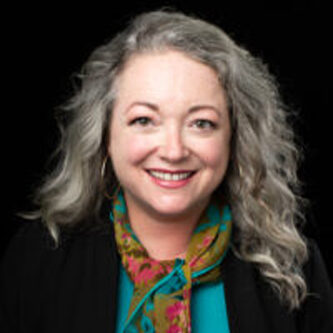Christine Hendren
STEPS Integration Director
Director of the Research Institute for Environment, Energy & Economics
Department of Geological and Environmental Sciences at Appalachian State University
Bio
Christine Ogilvie Hendren, PhD is the Director of the Research Institute for Environment, Energy & Economics and a Professor in the Department of Geological and Environmental Sciences at Appalachian State University in Boone, North Carolina. In these roles she builds capacity and facilitates growth of multidisciplinary research and scholarship on the sustainable use of our social, cultural, economic and natural capital for positive societal impact. Her work focuses on developing and applying methods, models and human processes to integrate and co-create knowledge across boundaries to enable research teams to address complex global challenges. Domain spaces include convergent topics such as forecasting environmental and health implications of nanotechnology, sustainability in agricultural systems, understanding interkingdom communication in the rhizosphere, and supporting sustainable innovation by integrating rich yet disparate environmental and built environment datasets.
Hendren holds a BA from Texas A&M University in Industrial Engineering, a Professional Master’s in Environmental Analysis and Decision Making from Rice University, and a PhD in Environmental Engineering from Duke University. After completing a fellowship at the US EPA within the National Center for Environmental Assessment, and working as a Senior Risk Assessor and Environmental Decision Analyst at RTI International, she returned to Duke in the role of Executive Director for the NSF-funded Center for Environmental Implications of NanoTechnology (CEINT). Through her nine years at CEINT she gained experience in intellectual community leadership and data and knowledge integration, in a field characterized by the pervasive uncertainty inherent to newly developing intersectional domain spaces. This drew her to involvement within the Science of Team Science community, where researchers studying team science and practitioners of team science interface to advance and apply a growing evidence basis for effective boundary-spanning in knowledge producing teams. In 2016 she founded the INTEREACH (Interdisciplinary Integration Research Careers Hub), a community of practice for people working across boundaries, now affiliated as a Special Interest Group of the International Network for the Science of Team Science. She served for two years as the faculty co-lead for the Team Science Core of the Duke Clinical and Translational Science Institute and chaired the 2020 annual conference for the Science of Team Science.
Hendren brings her focus on knowledge integration and co-generation within complex, interdisciplinary research efforts to STEPS, working across themes and cross-cutting efforts and engaging faculty, students, and stakeholder partners with the guiding principles of the STEPS human convergence toolkit: epistemic humility, interdependence, and co-creation of knowledge. She researches and practices methods for enabling convergence science across disciplinary, sectoral, institutional and cultural boundaries within the discipline of Integration and Implementation Sciences (I2S). This work often involves orchestrating interactions such as structured facilitated workshops, or fostering “boundary objects” to anchor concepts and efforts across multiple perspectives, including visual infographics to establish shared mental models, shared language dictionaries, and data integration. The inclusion of an I2S researcher and practitioner in the STEPS team is a recognition of the importance of intentional excellence in navigating the interstitial spaces within complex problems, to draw upon and contribute to evidence for impactful convergence research. Christine views the effective practice of I2S as a discipline as key to inclusivity in team science and seeks to reduce the emotional and intellectual burden of navigating interpersonal dimensions of team research, channeling that otherwise lost energy into high impact research outputs. She believes in Dr. Brené Brown’s assertion that “Clear is kind, Unclear is unkind” and that explicitly articulating expectations and creating a culture of transparency is key to spanning boundaries of all kinds to maximize our collective impact, including disciplinary, sectoral, geographic, demographic, and power.
Area(s) of Expertise
Integration Director

